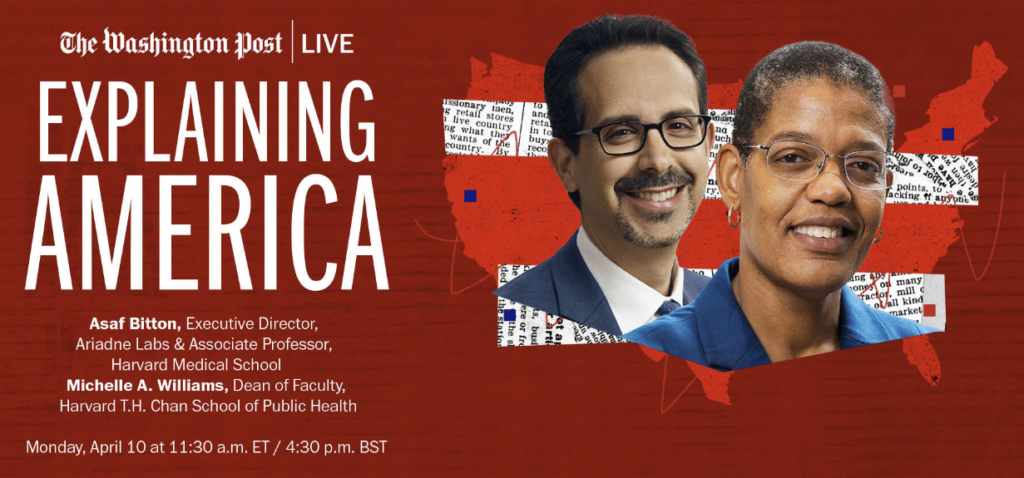
Why has life expectancy declined in the United States – one of richest countries in the world? Ariadne Labs Executive Director Asaf Bitton, MD, MPH, and Michelle Williams, SM, ScD, Dean of the Faculty of Harvard T.H. Chan School of Public Health, sat down with Washington Post reporter Frances Stead Sellers for an April 10th Post Live event to discuss this conundrum and why it is a harbinger of serious problems in the U.S. health system.
The pair said one of the factors behind the decline is that the American health system tends to focus on people’s health only when they become acutely ill. “We have a wonderful sick care system that takes care of very sick people but a very inadequate health care system,” Bitton said. Greater attention, said Williams, should be paid to investments in primary care, wellness, and disease prevention.
For example, Williams noted that deaths from cervical cancer can be prevented, but women are not getting basic cervical cancer screenings due to a lack of access to preventive care.
Another factor, according to Bitton, is the “unconscionably” high rate of maternal and infant mortality in the U.S., along with high rates of youth mortality. One in 25 five-year-olds doesn’t make it to their 40th birthday, he said.
The pair also discussed the problems with America’s reliance on highly processed foods and the lack of fresh fruits and vegetables in food deserts.
Bitton noted that investment in primary health care systems routinely results in both improved outcomes and improved equity. He cites the case of Costa Rica, a middle-income country that has built a health care system integrated with its public health system. The country has increased life expectancy to be higher than the U.S. while spending about a10th of what the U.S. spends.
A change in values is needed, they said. “We tend to celebrate breakthroughs at the expense of really doing the kind of intensive follow-through that is needed to completely leverage the know-how, the knowledge, the innovation, the extraordinary scientific talents that we have,” Williams said.
To do this, changes must be made in financial incentives and access to universal health care must be made “a moral imperative.” Said Bitton, “If we choose to look, there are a lot of lessons from around the world.”
Access the video and transcript here, or stream the conversation on Spotify.


